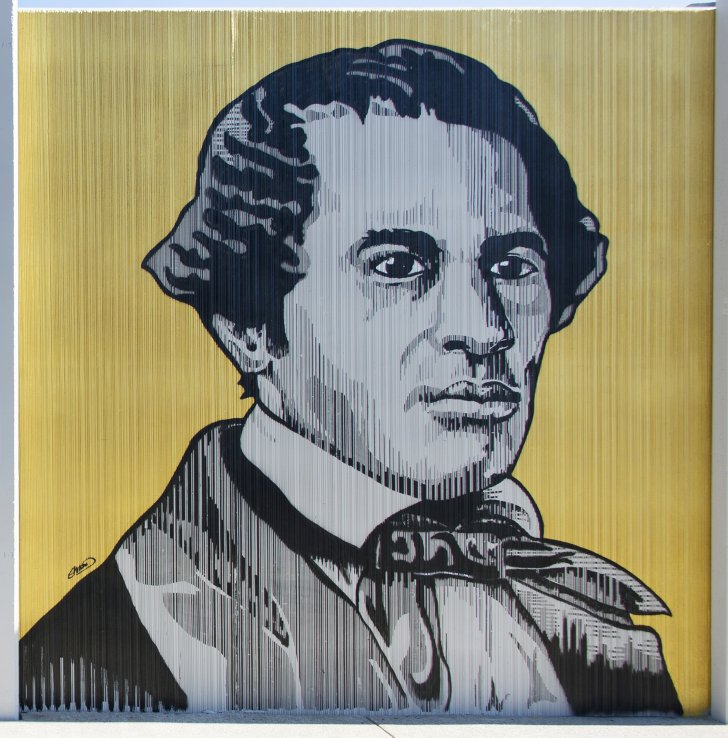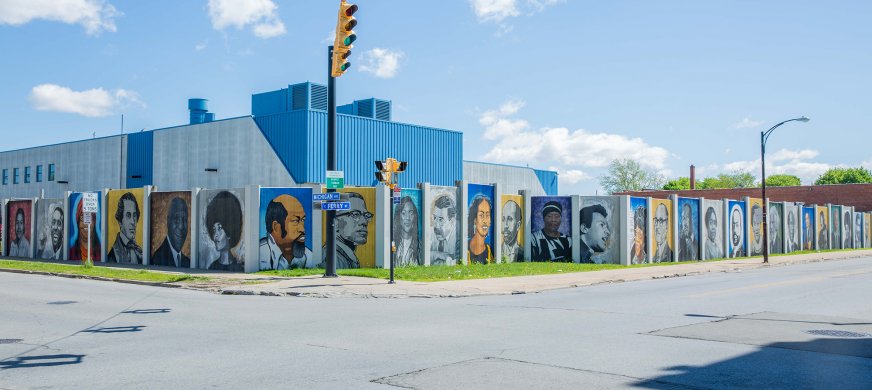William Wells Brown

Edreys Wajed’s portrait of William Wells Brown for The Freedom Wall, 2017. Photograph by Tom Loonan.
William Wells Brown escaped to freedom shortly before his twentieth birthday in 1834, taking the first step toward what would be a nearly fifty-year career as a celebrated abolitionist, speaker, and author. Born William to an enslaved woman and a relative of her owner, he adopted the middle and last names Wells Brown in honor of the Quaker who helped him get on his feet when he first arrived in Cleveland. Brown educated himself while working for various Lake Erie–based steamship companies, and he eventually moved to Buffalo in 1836. There, he began publicly speaking out against slavery and privately using his work connections to secure passage across Lake Erie to Canada for escaped slaves.
In 1843, Brown’s increasingly prominent public profile in progressive circles earned him a job as public speaker with the Western New York Anti-Slavery Society. This position brought him into contact with some of the era’s most prominent abolitionists, including Frederick Douglass. In part inspired by the success of Douglass’s Narrative of the Life of Frederick Douglass, an American Slave, Written by Himself, Brown published Narrative of William W. Brown, a Fugitive Slave in 1847, which became widely read in its own right. Now a best-selling author and public speaker, Brown was invited to speak at 1849’s International Peace Conference in Paris and in venues across Britain. While he was abroad, the Fugitive Slave Act of 1850 became law, which delayed Brown’s return to the United States until 1854, when British friends formally purchased his freedom from the owner he had escaped twenty years prior.
During his extended stay in Britain, Brown built on the success of his Narrative with the first travelogue and novel published by an African American. Even after becoming a physician in the 1860s, Brown continued to write extensively, publishing groundbreaking popular histories of black Civil War soldiers, Haiti’s eighteenth-century slave revolution, and African American contributions to world history and culture, as well as authoring plays and a compilation of antislavery songs.
